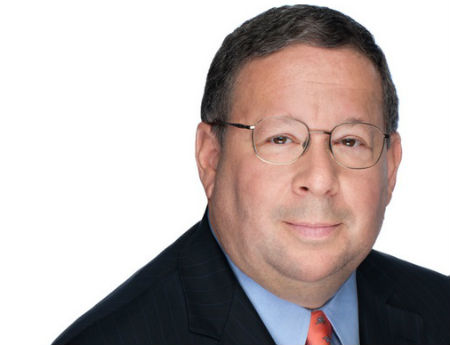Comcast's Cohen: TWC Deal Is All About Scale
The smarter way to stay on top of the multichannel video marketplace. Sign up below.
You are now subscribed
Your newsletter sign-up was successful

Comcast executive vice president David Cohen said Tuesday that the company needs to buy Time Warner Cable so it can have the scale to compete with Netflix, Amazon and others in the national marketplace for video, voice and other services.
In a conference call with reporters, he outlined the company's public interest filing with the FCC, saying the key was the pro-consumer benefits that scale would provide, at no cost to competition.
Asked about his view of Google Fiber efforts to launch competitive service and whether Comcast opposed that, Cohen said he didn’t' think Comcast had the ability or the right to do so. In any event he pointed out that so far that was only in a couple of markets, but said one of the reasons for doing the deal was to be able to be competitive with Google and others as they ramp up competition. Google is coming he said, and with global scale, and it won't be alone in "flooding" the multichannel marketplace.
He said satellite and telco competition had made Comcast a better company and he felt the same way about Google: "I think it will force us to up our game and be a better competitor."
Cohen was asked whether Comcast would be willing to extend network neutrality regs to peering and interconnection. He said he would not negotiate conditions in the press, but reiterated that arguments that conflated the two were off base.
Cohen said there were "few" competitive concerns with the deal, and the ones that were being raised were off base.
The first of those, he said was the "big is bad" argument.
The smarter way to stay on top of the multichannel video marketplace. Sign up below.
Cohen was clear that the deal was indeed about scale--getting bigger--which has said is not always bad thing. He said the difference between Comcast and its Netflix and Google and AT&T competitors is they had global scale. Boosting Comcast's customer base from 22 million to 30 million will help provide more comparable scale for R&D and infrastructure buildouts and better service.
One of those "big is bad" arguments is that the combined company could exert undue control over programming given that it would control almost 30% of the MVPD eyeballs.
Cohen pointed out that the FCC itself had set 30% as the threshold' for so-called monopsony power, a threshold that had been heavily litigated and thrown out by the court. But even so, Comcast/TWC would be under that threshold given its plans to spin off some 3 million subs.
As to control of the broadband market, he said that market is local, not national, and pointed out that folks will have no less choice in Comcast/TWC markets after the deal, but that TWC offerings will be speedier, an example of the benefits of the deal that would outweigh concerns. He also said that Comcast faced increasing competition for broadband from "new," higher speed, DSL.
He said concerns about the deal are legitimate, but are not as serious as many believe and are in any event, outweighed by the benefits.
He conceded Comcast has gotten some low customer service ratings, but says the company is working to fix that.
The FCC filing is over 650 pages, including applications to transfer 346 licenses, exhibits and other enclosures.
Contributing editor John Eggerton has been an editor and/or writer on media regulation, legislation and policy for over four decades, including covering the FCC, FTC, Congress, the major media trade associations, and the federal courts. In addition to Multichannel News and Broadcasting + Cable, his work has appeared in Radio World, TV Technology, TV Fax, This Week in Consumer Electronics, Variety and the Encyclopedia Britannica.

